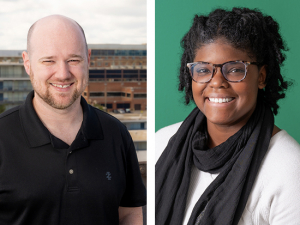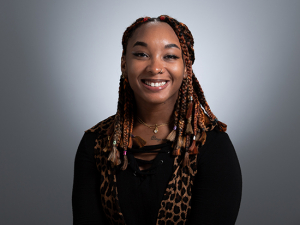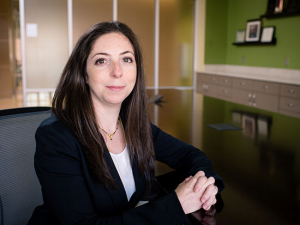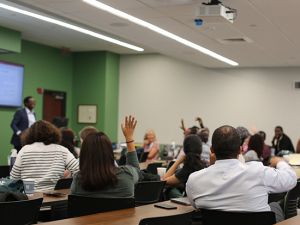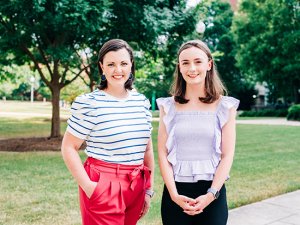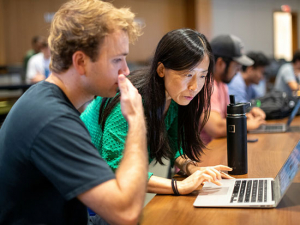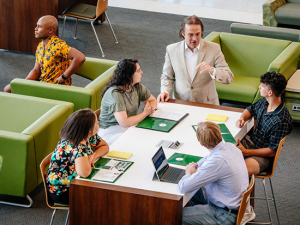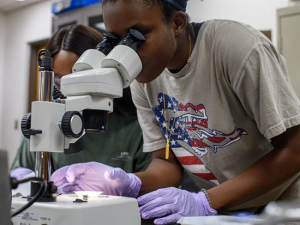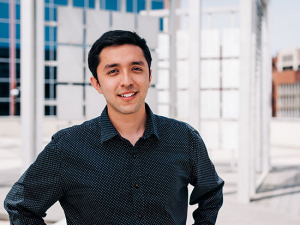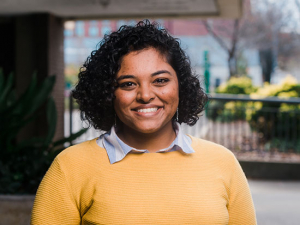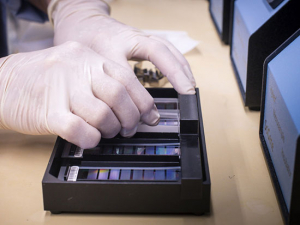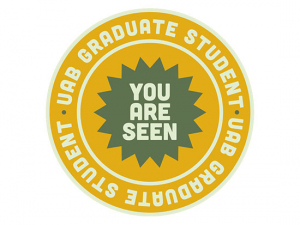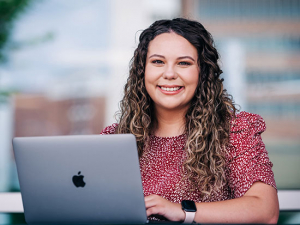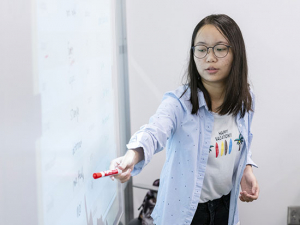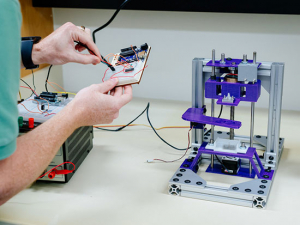 The development of new core courses for undergraduate students is an integral component of the education pillar of Forging the Future, UAB’s strategic plan. UAB students are encouraged to think critically and develop innovative solutions to local and global problems. With the new Signature Core Curriculum, which is under development, incoming freshmen in fall 2022 will have immediate opportunities to apply these skills to the local community and beyond.
The development of new core courses for undergraduate students is an integral component of the education pillar of Forging the Future, UAB’s strategic plan. UAB students are encouraged to think critically and develop innovative solutions to local and global problems. With the new Signature Core Curriculum, which is under development, incoming freshmen in fall 2022 will have immediate opportunities to apply these skills to the local community and beyond.
The development of new core courses for undergraduate students is an integral component of the education pillar of Forging the Future, UAB’s strategic plan. Given the university’s mission, national reputation and evolving student needs, an appraisal and revision of the curriculum was necessary to reflect UAB’s unique culture and focus on the development of socially conscious global leaders and citizens.
“With Forging the Future, we asked stakeholders from across campus to take a close look at the trends and challenges facing higher education and academic medical centers as we move into the future,” said UAB President Ray Watts. “The Signature Core Curriculum development process fits right within that strategy. The new curriculum capitalizes on UAB’s unique strengths and helps us further invest in our students’ growth and development.”
The current core curriculum was established in the 1990s and has not been updated since. A new Signature Core Curriculum will provide competencies that are critical for a 21st century curriculum and better equip students to meet their post-graduation goals.
|
"We wanted to develop courses and approaches that change how students and faculty approach teaching and learning.” |
As a first step in the process of developing the new curriculum, Senior Vice President for Academic Affairs and Provost Pam Benoit, Ph.D., in consultation with deans and the UAB Faculty Senate, established the Signature Core Curriculum Committee led by Alison Chapman, Ph.D., professor and chair of the UAB College of Arts and Sciences Department of English and Suzanne Judd, Ph.D., professor in the UAB School of Public Health Department of Biostatistics.
“The opportunity to integrate classroom learning with local and world events quickly emerged as foundational to the undergraduate experience at UAB.” Judd added. “As soon as we began talking about how to merge in opportunities to apply learning to the local community, students, faculty and community members became truly excited about how to make this happen.”
The committee also wanted this new curriculum to intersect with other aspects of the undergraduate experience. “UAB has experienced significant growth during the past 50 years, so it just made sense to update the required core classes to keep pace with our evolution,” Chapman said. “It was important to us to not just simply have a set of requirements on a page. Instead, we wanted to develop courses and approaches that change how students and faculty approach teaching and learning.”
Letting everyone have a voice
|
|
Chapman, Judd and the committee developed student and faculty surveys and hosted listening sessions across campus. The committee gathered ideas from stakeholders and drafted course outlines for feedback and revision.
“As we collected suggestions and feedback from various stakeholders, the committee reshaped and refined our draft curriculum,” Judd said. “We also developed task forces that explored aspects such as better communicating the core to students and establishing a governance structure for overseeing the core. Letting everyone have a voice in this was important.”
After a completed draft was ready, the committee provided it to the UAB Faculty Senate for final review and endorsement. The committee developed a set of guiding principles:
- Develop critical, analytical thinking and data-driven decision-making in ways that engage students in the learning process,
- Teach students the skills, knowledge and habits of mind they need to solve real-world problems,
- Teach excellent communication skills, and
- Enable students to freely exchange and debate new ideas, question biases and assumptions and test and redefine their personal values.
During the next year, courses will be refined to implement the new core requirements and updates reflected in the university course catalogue. The Signature Core Curriculum will officially replace the exiting core beginning in fall 2022.
|
|
“The goal of this curriculum is to help students develop an increased understanding of citizenship and service,” Chapman said. “Students will have opportunities to learn how issues and trends right here in our local communities reflect larger national and global realities. The economy, sustainability, the arts, poverty, education, health — if you want to know more about these and other big picture issues, you can start by studying how they impact our city, state and region. Encouraging students to think locally in their coursework also has another advantage. It’s then easier to get them engaged in solving modern-day problems and serving their communities.”
Along with dedicated faculty and innovation, Benoit credits UAB’s position in Birmingham as a vehicle for accelerating curriculum changes.
“UAB benefits from its location in Birmingham,” Benoit said. “It is a wonderfully diverse city offering so many learning opportunities for students. I look forward to faculty and students working together to further develop connections with some of the most dynamic parts of our community and learning about the relationship between local and global issues.”
While other public universities in Alabama have made small adjustments to their core curricula over the years, UAB is the first to undertake a revision on this scale, according to Chapman. It is also the first to connect the learning experience to a heightened understanding of place.
“It just made sense,” Chapman said. “This campus sits in the heart of a vibrant, fascinating city. We wanted to honor the B in UAB by saying to our incoming students ‘this place can be your classroom, your laboratory, your gateway to the world.’”


